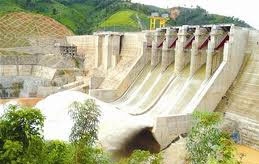Looking for local tools to get the job done
 |
| illustration photo |
According to Applied Technical Systems Company Limited’s deputy director Tran Anh Thai, developers of power projects under state groups Electricity of Vietnam, PetroVietnam and Vinacomin should give concrete demands to contractors to use locally-made products in a list enacted by the Ministry of Industry and Trade (MoIT).
“Developers often consider the right to choose equipment belonging to contractors while government’s policies are to regulate contractors. Therefore, local firms could hardly gain the right to supply equipment to projects though they can manufacture quality items to meet project standards,” said Thai.
Vietnam Association of Machinery Industry’s (VAMI) chairman Nguyen Van Thu said developers’ bidding packages were often beyond the production and supply capacity of local contractors.
“When VAMI asked developers to separate bidding packages for equipment supply to create more chance to local firms, most developers were unwilling to do so saying that this would push up costs,” said Thu.
The practice was reflected in a MoIT report which read that project developers mainly sourced foreign loans due to limited state capital sources. Financial requirements on loan provisions demand gathering bidding packages into bigger ones. This made negotiations with winning contractors on using locally-made materials and equipment for projects rather difficult as contractors often took project quality, progress or economic aspect as core reasons for their refusal.
Materials and goods provision to projects would continue falling on foreign contractors’ hands unless the Law on Bidding was revised, according to Equipment and Spare Parts Corporation’s general director Vu Viet Kha.
Reality shows that local manufacturing enterprises have embarked on hydraulic equipment manufacture for power projects for around seven years and the equipment quality was appreciated.
Kha, however, commented with total investment capital of local manufacturing enterprises of less than $1 billion, even lower than a manufacturing plant’s total capitalisation in foreign countries like South Korea, it would be an one-sided competition for local firms to win contracts from foreign players.
Besides, Kha said a mechanical manufacturing project would need long-term loans from three to five years, while lending policies were volatile making developers continuously revise projects to make profit rates match interest rates to ensure project efficiency.
“Current 20 per cent lending rates are beyond the scope of local mechanical manufacturing firms as no incentives are available to mechanical manufacturing or complete equipment manufacture,” Kha said.
What the stars mean:
★ Poor ★ ★ Promising ★★★ Good ★★★★ Very good ★★★★★ Exceptional
Related Contents
Latest News
More News
- Site clearance work launched for Dung Quat refinery upgrade (February 04, 2026 | 18:06)
- Masan High-Tech Materials reports profit: a view from Nui Phao mine (February 04, 2026 | 16:13)
- Hermes joins Long Thanh cargo terminal development (February 04, 2026 | 15:59)
- SCG enhances production and distribution in Vietnam (February 04, 2026 | 08:00)
- UNIVACCO strengthens Asia expansion with Vietnam facility (February 03, 2026 | 08:00)
- Cai Mep Ha Port project wins approval with $1.95bn investment (February 02, 2026 | 16:17)
- Repositioning Vietnam in Asia’s manufacturing race (February 02, 2026 | 16:00)
- Manufacturing growth remains solid in early 2026 (February 02, 2026 | 15:28)
- Navigating venture capital trends across the continent (February 02, 2026 | 14:00)
- Motivations to achieve high growth (February 02, 2026 | 11:00)

 Tag:
Tag:




















 Mobile Version
Mobile Version